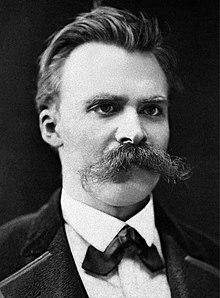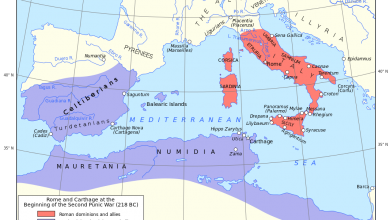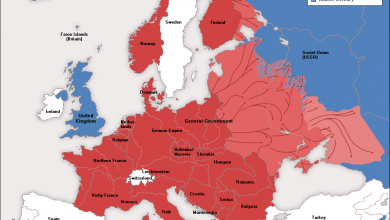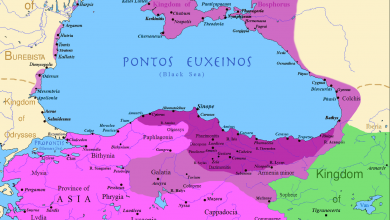The idea of Cosmopolitanism in the European philosophical tradition

Cosmopolitanism (from the Greek words “kosmos = world” and “politês = citizen”) is generally defined as the belief that “all human beings, regardless of their political affiliation, are (or can and should be) citizens in a single community” (Stanford Encyclopedia of Philosophy).

The first theorization of cosmopolitanism is due to the Sophists, Ancient Greece philosophers lived around the 5th century b.C. who developed revolutionary philosophical themes for the time, including cosmopolitanism, that was an idea totally in contrast with the Greek tradition of rivalry between different póleis, and that was strongly linked with their moral relativism, deducted by the differences between Greek and Barbaric customs and values.
Although the very first philosopher to use the word “kosmopolitês” (citizen of the world) when he was asked where was he from was the cynic Diogenes of Sinope (412 b.C. – 323 b.C.), the philosophical school which most embraced and focused on cosmopolitanism during Hellenistic and Roman era were the Stoics. In fact, their belief that the whole world was animated and governed by an intelligent order brought them to believe that the virtue of men consists in finding its place in the great machine of the universe, and the only way to achieve that was understanding and obeying the great natural law, which is common to the whole human kind. This is clearly resumed by Philo of Alexandria (25 b.C – 50 a.C.):
“A man who is obedient to the law, being, by so doing, a citizen of the world (kosmopolitês), arranges his actions with reference to the intention of nature, in harmony with which the whole universal world is regulated” (On the creation, 3).
In the Middle Ages, with the fall of the Roman Empire and the Catholic Church being the only universal institution keeping its influence strong on the whole continent, we can find two different traces of cosmopolitanism in two different periods: the rising and cooperation of monasteries of different orders in the early Middle Ages, and the exchange of ideas and intellectuals from different universities in the late Middle Ages. Both of these phenomena were crucial for the preservation and development of a supranational continental culture, and represent the closest points to the idea of cosmopolitanism of the whole Middle Ages. It’s interesting to notice how the concept of cosmopolitanism here can be applied only between Christian Europeans, while despite all the fundamental contacts and exchanges between Christians and Arabs, the two different populations and cultures basically remained and always felt separated from each other.
With the rise and flourishing of the Humanistic era in Europe we have the consolidation of the structure of modern independent states, which divides different populations with borders, but despite that we also see an incredible experience of intellectual cosmopolitanism. In fact humanist intellectuals from all over the continent (such as Erasmus of Rotterdam) start joining philosophical and philological disputes and debates together, giving birth to what it’s called “Respublica Litteraria” (Republic of Letters in latin, a term used for the first time by the humanist F. Barbaro), a fictional metaphoric state formed by the community of the most brilliant minds of the continent (no matter their provenience or beliefs) and that existed only in the missives that humanists used to send to each other.
In the Renaissance a theoric step towards cosmopolitanism is made through the thorization by lot of intellectuals like T. More, J. Althusius, and most importantly H. Grotius, of Natural Law. Partially inspired by the Stoics and by Thomas Aquinas doctrines, and consonant with the 17th century rationalistic tradition, Grotius was convinced of the existence of a Natural Law common to every man, which would be the law in a hypothetical “State of nature” (human condition without any state or institution). This law is essentially rational and the laws of every state (which is born from a Social Contract stipulated by the members of a community) should follow its guidelines. This idea implies the purely conventional nature of the state and the belonging of every individual to the great community of humankind, who share together the subjection to the common Natural Law.
Grotius ideas on Natural Law and the Social Contract will be then shared by most of the philosophers for almost two centuries, from Hobbes and Locke to Rousseau and Kant (in fact Cosmopolitanism will be one of the main points of the Enlightenment thought) and are clearly present in important documents like the American Independence Declaration:
“When in the Course of human events, it becomes necessary for one people to dissolve the political bands which have connected them with another, and to assume among the powers of the earth, the separate and equal station to which the Laws of Nature and of Nature’s God entitle them, a decent respect to the opinions of mankind requires that they should declare the causes which impel them to the separation.”
And in the Declaration of the Rights of Man and of the Citizen from 1789:
“Article II – The goal of any political association is the conservation of the natural and imprescriptible rights of man. These rights are liberty, property, safety and resistance against oppression.”

In the 18th century the idea of cosmopolitanism can be found in the thought of philosophers like Nietzsche (who promoted an individualism against any form of state, which he called “the coldest of all cold monsters”) and of Marx (“Workers of the world, unite!”), but apart from these philosophical and unrealized ideas, the main mood of the century is a unrestrainable growing of patriotism (deriving from romanticism and idealism), who will lead to many revolts and revolutions, and it will later lead to the spreading of nationalism through the whole european continent. In this century the idea of cosmopolitanism, deriving from the illuminist rational thinking, is outmoded and substituted by the more emotive and romantic idea of nationalism, that divided people in base of their culture and ethnicity.
We now arrive to the 20th century, a century of great divisions. In the first half we see the great atrocities of the two World Wars, which have as one of their main causes the nationalism who kept growing stronger and lead the world to inevitable conflicts. In the second half of the century, Europe and the world are literally divided in two parts in conflict, it’s the Cold War, who’d kept humanity in the constant risk of being wiped away from the face of the planet. At the end of the century, after all the bloodsheds and negativity that national conflicts had caused to humanity, people from all over the world had welcomed with enormous joy the end of Cold War and the falling of divisions (symbolically represented by the fall of Berlin’s Wall), and were finally ready for a new era of unity and cosmopolitanism.
But that’s not what happened, in the recent times more and more crisis (social and economical) had proved a lot people’s faith in humanity union and cosmopolitanism. Often the stranger is not seen as a fellow human, a peer, but as a potential enemy, a rival I shall compete with and from whom I shall defend myself by isolating my community more and more.
What does the future looks like for cosmopolitanism? Looking at the recent political results: not bright at all. But the author of this article strongly believes that by learning from history and its examples, this extremely powerful idea shouldn’t be abandoned, on the contrary it should be fully embraced to achieve goals not for the interest of this or that nation, but for the good of humanity. A good step towards the realization of cosmopolitanism? A united Europe.






I’ve been browsing online more than three hours today, yet I never found any interesting article like
yours. It’s pretty worth enough for me. In my opinion, if all webmasters and
bloggers made good content as you did, the internet will be a lot more useful than ever before.
Thank you very much! It’s really nice to get some appreciation!
I’m extremely impressed with your writing skills as well as with the layout on your weblog.
Is this a paid theme or did you modify it yourself? Anyway keep
up the excellent quality writing, it is rare to see a nice
blog like this one nowadays.
I’m very glad you like the writing as well as the website! We do our best to provide quality everyday!